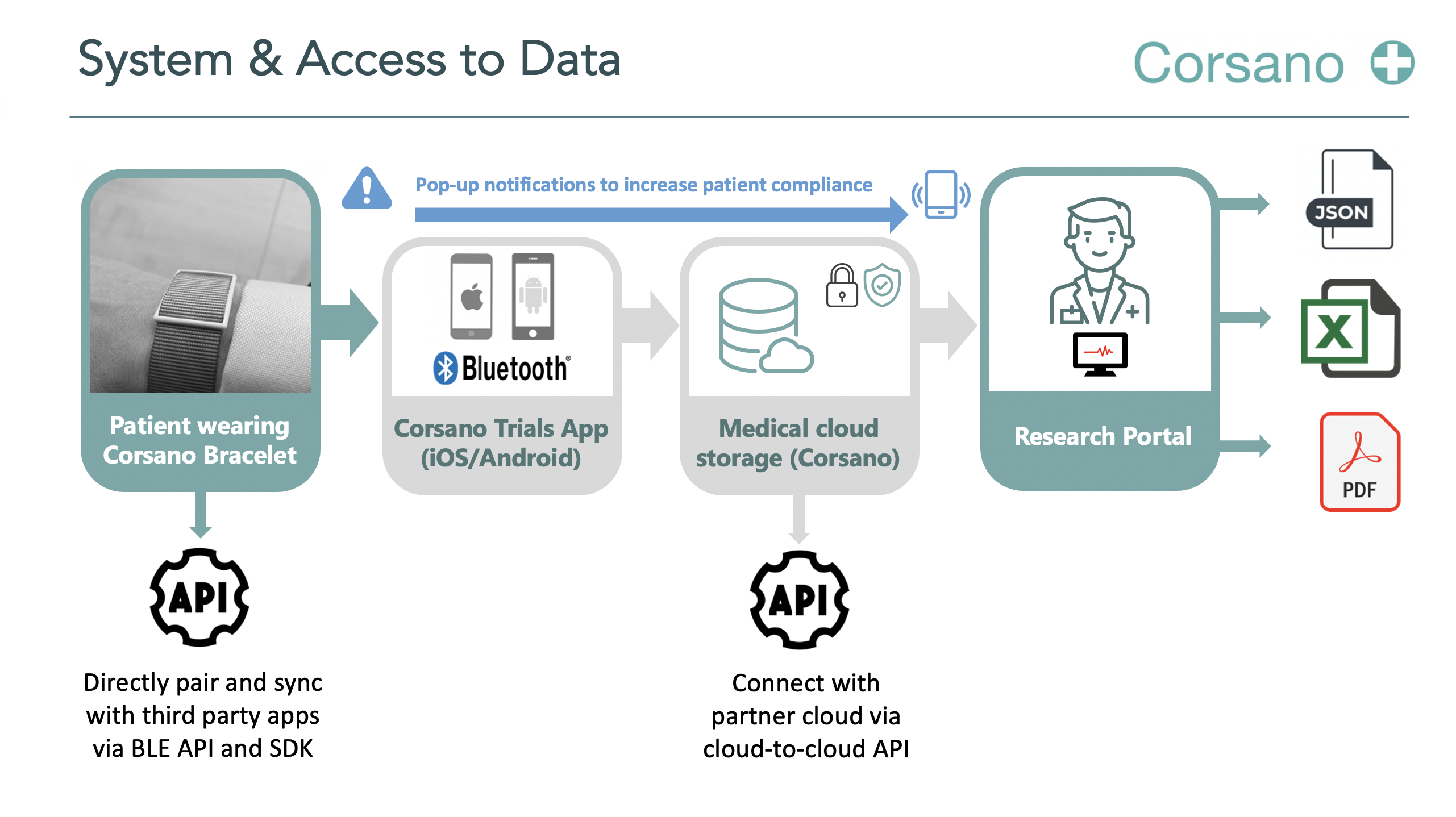Topic
In this prospective single-center trial, a wearable photoplethysmographic (PPG) sensor coupled with a cloud analytics service will be used to detect and quantify atrial fibrillation (AF) episodes in patients with known paroxysmal AF. Patients will simultaneously receive the PPG sensor in form of a smartwatch or bracelet and a Holter ECG for 48 hours. Correctly identified AF episodes and AF burden determined by both methods will be compared.
Number of Participants
360 Non-Randomized
Inclusion / Exclusion criteria
Inclusion criteria
age ≥ 18 years
written informed consent
Exclusion criteria
Cardiac implanted electronic device (Pacemaker, ICD)
Smartwatch/Bracelet and/or ECG device cannot be worn due to comprehensible reasons (allergic reactions, wounds, amputations, other)
Patients unable or not willing to sign informed consent Significant mental or cognitive impairment
Study Design
In this prospective single-center trial, the PPG wearable Corsano CardioWatch 287 sensor will be used to conduct continuous heart rate and -rhythm monitoring in patients with known paroxysmal AF. Collected data will then be analysed using a Cloud Analytics Service (Preventicus Heartbeats algorithm) and compared with data from simultaneously obtained 48-hour Holter ECG. Correctly identified AF episodes, their cumulative duration per 48 hours (AF burden) and the number of asymptomatic episodes will be assessed. In the primary analyses, the sensitivity of the PPG analysing algorithm to detect AF episodes is estimated by performing a logistic regression on detection (yes/no) with only an intercept as predictor, which is then translated to a proportion (the sensitivity). In the secondary analyses we are comparing the cumulative duration of AF episodes over 48 hours (AF burden) obtained with the PPG-sensor and Holter-ECG. In summary, the purpose of the study is to evaluate the performance and efficacy of the wearable PPG sensor and the cloud analytics service in detecting and quantifying AF episodes in patients with known history of paroxysmal AF.
Study Centre
Universitiy Hospital Basel, Switzerland
Start time, Duration
Start: September 24, 2020, Total study duration: 36 months
Interested in our Trial Programme?
Corsano Cardiowatch Bracelets enable continuous monitoring with multiple algorithms. Corsano is working closely with cardiologists, scientists, hospitals, patients, and research organisations. Scientific research demonstrates the legitimacy of Cardiowatch 287 algorithms.
We are currently performing pilots with selected clients. Contact us if you want to know more!
The founders of Corsano Health have over 100 years of experience in the Swiss Watch industry, with deep experience about ergonomic design and materials for wearables that are worn 24/7.
